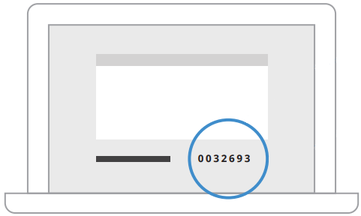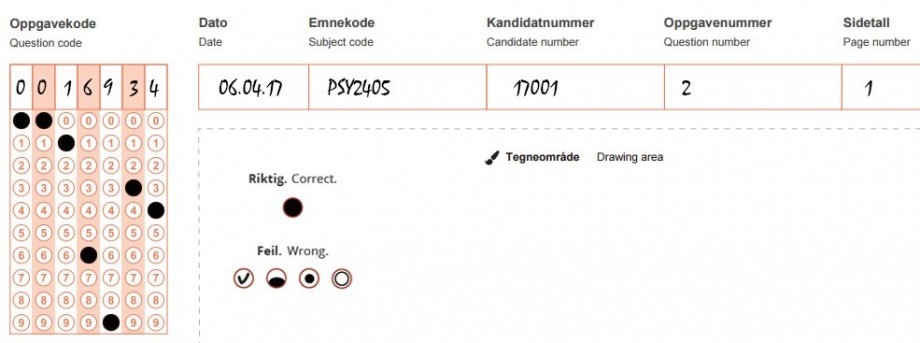Everything about exams
What happens if I fall ill during an exam? Can I use ChatGPT, and how do I actually register for an exam? Find everything you need to know about examination at the University of Stavanger.
How is a digital exam conducted?
Registration for an exam
There are different ways to register for ordinary, resit and extraordinary exams.
Examination schedule
Where do I find the exam date, place and other practical information?
You can find exam dates and other important information like examination room, candidate number and granted special examination arrangements on Studentweb.
The exam dates will be published on Studentweb within:
- Ordinary exams for the spring semester: December 15th
- Ordinary exams for the autumn semester: July 15th
- Resit exams for the spring semester: July 31st
- Resit exams for the autumn semester: January 31st
Please note that UiS is entitled to change the examination date up to three weeks before the exam takes place, and that students themselves are responsible for staying up to date. Therefore, check Studentweb regulary for updates.
For candidates at the Faculty of Performing Arts: All the dates for performing exams will be published in the time scheduling system.
Absence and withdrawal
What happens if I get sick on the exam day, or have to withdraw for other reasons?
Special examination arrangements
If you have a documented need, you may apply for special examination arrangements.
Mandatory exercises
What is mandatory exercises?
Many courses have mandatory exercises/coursework requirements like assignments, laboratory exercises, tests, exams, compulsory teaching and performing/practical tests. This is stated in the course description.
Candidates who do not meet the established coursework requirements will be refused access to testing, except in the case of valid absence and the Dean decides that admission would be academically appropriate. In this case, applications are made in Digital Student Service Desk within 5 working days after the current test.
School examination
How do you conduct and submit a school exam?
A school exam is conducted physically on campus, either as a digital exam in Inspera or by using pen and paper. Arrive at the exam day no later than 30 minutes before the start time of the exam. The exam room opens at 08:30. Remember to bring a valid physical ID with picture and check in advance which aids are permitted.
Home examination
How do you conduct and submit a home exam?
Home exams are usually submitted in Inspera or Canvas. You will not need Safe Exam Browser to conduct a home exam, but make sure to have a stable WiFi-connection and check that everything is working in advance.
Oral examination
How do you conduct an oral exam?
You can find guidelines on conducting online oral examinations here.
Justification of grade and right to appeal
If you want to know why you got the grade you got, you can ask for a justification. You can also appeal your grade or complain against formal errors during testing.
Use of ChatGPT
Use of language models (such as ChatGPT and Microsoft Copilot) in assignment writing and exams.
What do I need to know?
KI tools can support your learning when used appropriately. This means you can receive assistance with brainstorming ideas and writing support, but KI tools cannot replace your own thinking and writing. You may miss out on valuable learning if you let KI tools take over your tasks and development as a student. Additionally, having subject knowledge and an overview of the curriculum is essential to benefit from tools like writing robots. Understanding the topic helps you create good prompts and critically eveluate suggestions you receive from tools like ChatGPT or Microsoft Copilot.
Independent work
When completing assignments at UiS, it’s essential that your work reflects your own learning and effort. You should avoid copying text from a language model or other sources. Ultimately, you are responsible for the final text submitted for assessment.
Generated text is not a scientific source
In academic texts, it’s crucial to use verifiable and scientific sources that demonstrate the foundation of your knowledge. Academic arguments and claims should be testable. This means that the assessor is able to trace back to the sources you’ve used in your assignment through the citations in your text.
Text generated by a language model is not an information source on par with, for example, required reading materials or research articles. The primary issue with text produced by a language model is that it is not retrievable; we don’t know which source material was used or where the text originated. No one verifies the quality of the produced texts. Consequently, a language model can provide incorrect and biased information, citing sources that are neither credible nor accurate. When reading or working with text from a language model, it’s essential to exercise source criticism. You can learn more about source criticism in Kildekompasset
If you’ve been instructed to use text or similar content generated by a language model in an exam or assignment, you should reference the bot just like any other source. Additionally, describe how you’ve utilized the language model and include the chat log. To learn how to reference a language model using APA style, consult Kildekompasset.
How to use a language model as learning support during assignment writing/exams
Language models like ChatGPT and Microsoft Copilot are permissible aids in assignments and exams where all aids are allowed and nothing else is specified. These can be useful tools, but you still have to adhere to the rules of academic writing and citation. If you're unsure about what applies to your course, contact the course coordinator.
In general, proper use of AI tools means that these tools are used as an aid. The response is prepared by the students themselves, and sources are cited in accordance with the regulations. The sources should be referenced both in the reference list and within the text.
If you submit text, calculations, etc. that are directly copied from a language model , this will be considered as presenting others' work as your own, and thus, cheating. It should be clear what are your ideas and what are others.
Cheating and plagiarism
What is cheating and plagiarism? What are the consequences of cheating on an exam?
Many students are unsure of which rules apply to the exam and may not know that breaking these rules can have major consequences for the individual student's right to study. All students at UiS have a duty to familiarize themselves with the rules for the examination, while UiS is obliged to provide good information about these rules and ensure that students have the information they need to complete the examination in a correct manner available.
Relevant exam courses
Contact and Tools
Do you have questions about exams that you can't find answers to?








